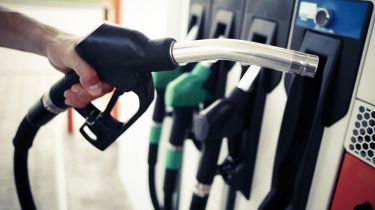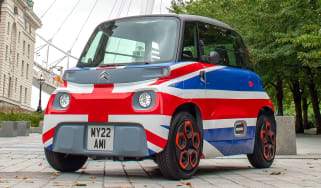Panic buying closes two thirds of independent filling stations
Drivers ignore calls for calm from ministers, who claim there’s plenty of fuel in the system

A weekend of panic-buying has led to more dry pumps at filling stations, with the Petrol Retailers Association (PRA) reporting today that around two thirds of independent petrol stations have empty tanks.
While major chains and supermarkets continue to receive fuel supplies, that hasn’t deterred motorists from joining queues at filling stations around the country, and the high demand has exacerbated the problems reported last week when a handful of filling stations had to close due to the shortage of tanker drivers.
The government has responded to the worsening situation by relaxing competition rules for the oil industry, which means oil firms are temporarily able to work together to manage stocks and distribution. It has also been reported that the government is considering providing army drivers to continue fuel deliveries, and 6,000 temporary visas are to be offered to HGV drivers from overseas. Army personnel are already being deployed to help ramp-up numbers of HGV driving tests.
Business Secretary Kwasi Kwarteng announced the temporary change to competition law, saying the government will maintain fuel supplies via long-standing contingency plans.
"While there has always been and continues to be plenty of fuel at refineries and terminals, we are aware that there have been some issues with supply chains,” he said.
"This is why we will enact the Downstream Oil Protocol to ensure industry can share vital information and work together more effectively to ensure disruption is minimised.”
The current run on fuels began last week after BP and Esso both announced that a ‘handful’ of filling stations were forced to close temporarily on September 23 due to the companies’ inability to distribute fuel to them on time.
At the time the closures were more of an inconvenience than a crisis, as neighbouring filling stations are typically served by different suppliers. However, the Road Haulage Association warned drivers to expect more temporary petrol station closures in the coming weeks as the industry struggles to fill driver vacancies; panic buying started soon afterwards.
Gordon Balmer, executive director of the PRA, told Auto Express: “Like many industries, the retail fuels sector is under supply pressure from a lack of trained HGV drivers. At a PRA member event in the north last week, retailers with a wide variety of fuel brands confirmed there were no supply outages. Some sites are confirming delayed deliveries, however, and so far, issues appear confined to London and the South-East and appear temporary by nature.
“According to latest BEIS data, fuel demand is still only at 92 per cent of pre-pandemic levels so we believe there should be ample stock available at refineries and delivery terminals throughout the UK,” says Balmer. “Cases of complete forecourt stockouts have been rare so the resilience of retail fuels is not in question. which is good news for the motorist.”
It’s not the first time filling stations have been forced to close due to the HGV driver crisis, with BP also closing a number of stations earlier this month. Delivery problems have hit many other industries too, including fast food retailers, and many councils have experienced problems with refuse collections.
While the haulage industry wants the government to add HGV drivers to the list of jobs that can be filled by migrant workers, the government is reluctant to go down that route.
Grant Shapps, Secretary of State for Transport told the BBC this morning he had a simple message for drivers: “Carry on as normal, there’s no shortage of fuel in the refineries. This is a systemic longer term problem which has been massively exacerbated by the lack of HGV driver testing [due to Covid]. The fuel is there, it can continue to flow. I’m not saying there aren’t pressures but we are moving heaven and earth to get people into driving HGVs on very good salaries.
“What I don’t want to do is undercut [salaries] with cheaper European drivers, then find our drivers drop out because they’re being undercut. That doesn’t solve the problem, it just creates a new one.”
However Shapps does want to encourage the return to the UK of many European HGV drivers who already have settled status and may be attracted by rapidly rising salaries in the sector, and also points to a “massive expansion” of HGV driver testing already being undertaken here in the UK by the Driver and Vehicle Standards Agency.
Looking to ditch your petrol or diesel car for an EV? Check out our list of the best electric cars here...



